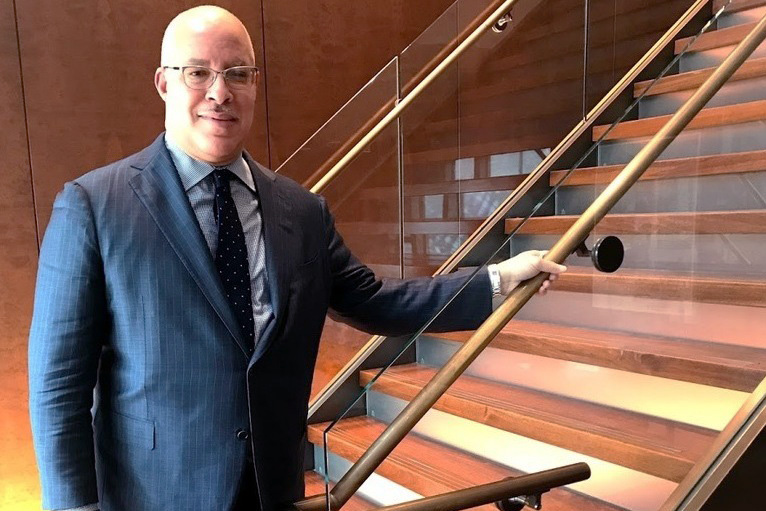After years being known as the pal and golfing buddy to former President Barack Obama, Eric Whitaker slipped out of the spotlight to start a company.
Now the self-described health-care investor is back in. The 53-year-old has joined the board of the DuSable Museum and Education Center and he's rebuilding the little-known youth program—the Chicago Area Health and Medical Careers Program—that closed down 18 months ago when state funding dried up.
The program started in the late 1970s at the Illinois Institute of Technology as a mentoring program for students looking for careers in health care and medicine. (It’s for years been nicknamed “Champ” because the real acronym—CAHMCP—is hard to pronounce.) Whitaker was one of the first students to enroll in Champ when he was in high school on the Southwest Side.
In a recent interview at his Michigan Avenue office, Whitaker—who now lives in South Shore—talked about the new Champ program and its role in his career, the scrutiny he came under during a high-profile court case, and that lifelong friendship with Obama.
What prompted you to rebuild the Chicago Area Health and Medical Careers Program?
I'm a product of Champ. It was transformative. I went to St. Rita High School—took four buses to get there—and played basketball there. Champ was separate from school.
I was around kids who weren’t afraid to show their smarts. In high school, smart kids can sometimes be ostracized. In Champ, you didn’t have to hide your light just so other kids could be comfortable. You could be excellent and not be afraid to show it. It really helped me become the physician I am today.
When did you know you'd pursue a career in medicine?
One day our summer counselors took us to a prenatal clinic at the Robert Taylor Homes. There was this idea that poor people don’t want health care. All I remember from that visit is seeing pregnant women lined up outside of the clinic waiting to get in. That vision stays with me.
Your specialty is urban health. Where did you study that?
I trained at San Francisco General Hospital from 1993 to 1996. I was an early researcher in how HIV impacts the African-American community, especially black men.
Before focusing on Champ, you started and sold a company [Symphonix, a Medicare Part D insurance company that sold for a price he won't disclose]. How did you make the jump from the for-profit to nonprofit world?
I like to build things. I love the energy that comes from figuring out how to take something from an idea and gathering resources to get it started. In 2012, a partner and I started an insurance company that really tried to target how to get cost-effective drugs to predominantly low-income populations. We started the company from scratch and built it up across 48 states in 3 years.
You drew scrutiny for heading the state Public Health Department (from 2003 to 2007), where employees were found guilty three years ago of embezzlement. Can you talk about that?
I was a witness in a trial, not a defendant. I was then, and will always be, forthright and transparent about my work. I did my job—which is finding ways to deliver effective health care to under-served communities. That was my greatest passion then and remains so today.
People think of you as a connected guy who plays golf with Barack Obama. What don't they know about you?
I don’t know if people know anything about me, to be honest. Most people have no idea about the work I’m interested in. The challenge with the Barack thing, I just became a golfing and basketball buddy. But I have a full career absent all of that. I testified before Congress twice when I was 26, and I served as national president of a 30,000-strong medical-student organization.
Between Champ and DuSable museum, you're busy.
I’m at a point in my life where I want to focus on what motivates me and excites me.



